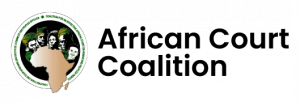By: Hannah Gavin
Impunity Watch Staff Writer
ARUSHA, Tanzania – The African Court on Human and People’s Rights has been facing difficulty in recent months as nations have growingly been unwilling to co-operate with the court.

The nations of Benin, Côte d’Ivoire and Tanzania all recently withdrew the right of individuals and NGOs to file cases with the court directly. These nations join several other African nations that have either revoked the right for individuals to file or are not complying with the court’s decisions. The reasons for the revocations are due to decisions by the court that these nations view as too harsh and unfavorable. The International Director for Research and Policy from Amnesty International discussed the matter by stating, “The decision by countries to hit back at the court for decisions they disagreed with is extremely worrying. African states must refrain from using political muscle against institutions whose very purpose is to ensure justice is available to everyone, regardless of their government’s politics.”
In addition to nations outright denying the court’s decisions, many have also opted to ignore its obligations. The court requires that nations submit periodic reports so that they may keep track of potential arising violations. Only six of the thirty nations had submitted reports. An additional six nations had never submitted a single report. These actions already presented many concerns to human rights before the COVID-19 pandemic, since the pandemic these have become grave threats. Many countries have used excessive force, arrests, and strict restrictions to curb the effects of the virus. Specifically, people who were already of limited resources are being hit especially hard.
Some of those that are historically underprivileged include the elderly and those with disabilities. These at-risk groups are often targets of human rights violations. To combat this, two protocols dictating rights for these marginalized groups were adopted by the African Union. However, several years after their adoption, the protocols have yet to be ratified.
These restrictions have raised alarms for the African and international communities, as going against the implicit purpose of the court. By restricting access to fair proceedings, individuals who are victims of these crimes may be unable to seek help. More egregiously, nations that perpetrate such abuses will be left with citizens struggling to find legal support. Many diverse nations make up the African continent, without the assistance of the court to regulate severe human rights abuses, many nations risk slipping from democratic societies into despotisms.
For further information, please see: